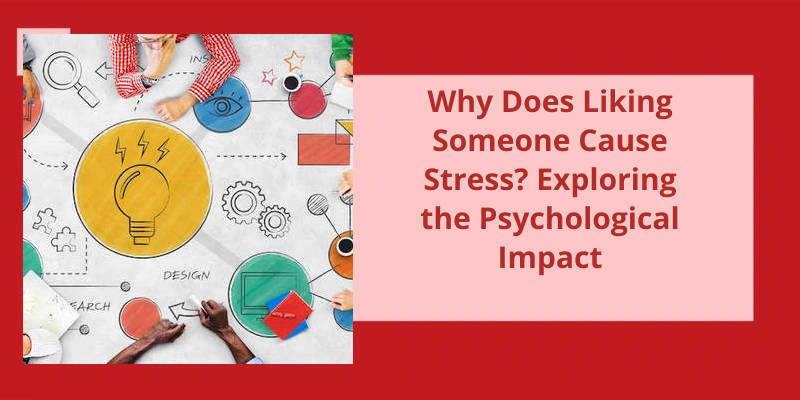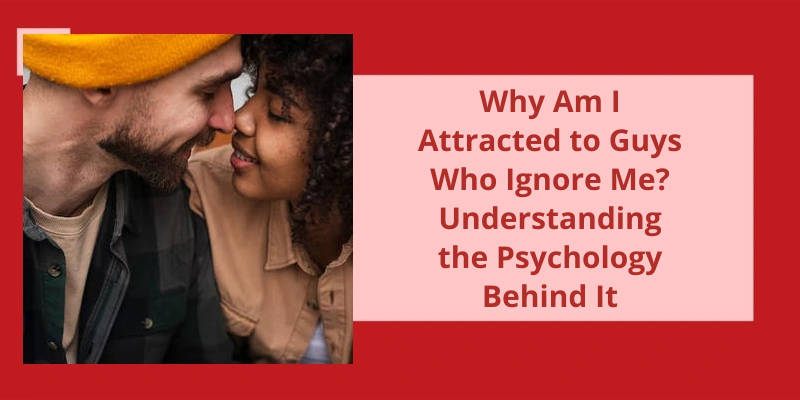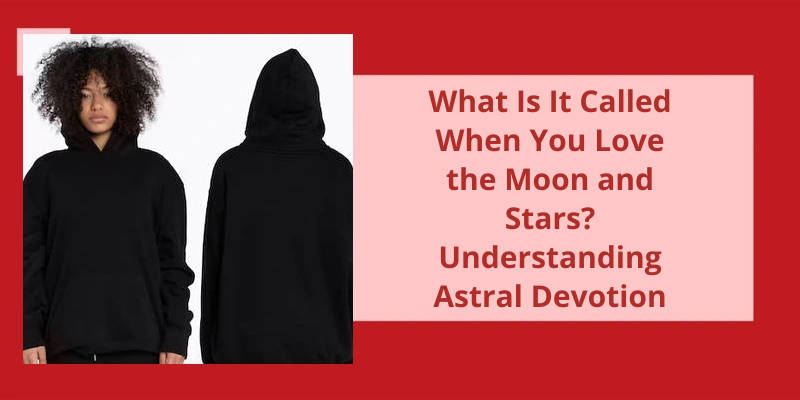This depletion of serotonin in the brain can lead to a range of emotional and psychological symptoms that are commonly associated with stress. When we develop feelings for someone and experience the emotional rollercoaster of liking someone, it sets off a cascade of reactions in our bodies and minds. Our brains become flooded with adrenaline and other stress hormones, activating the body's fight-or-flight response and putting us on high alert. This heightened state of arousal can manifest as anxiety, restlessness, and a constant preoccupation with the object of our affections. Furthermore, the fear of rejection and uncertainty about the other person's feelings can intensify these stress levels, creating a vicious cycle of emotional turmoil.
Why Is Loving Someone So Stressful?
The experience of falling in love is often accompanied by a rollercoaster of emotions that can cause significant stress. One reason for this is the intimacy that develops between two individuals in the early stages of a relationship. Opening up to someone new and sharing personal experiences and thoughts can be both exciting and frightening. This vulnerability can lead to anxiety and fear, as individuals worry about being accepted and understood by their partner.
Hormones such as dopamine, oxytocin, and serotonin flood the brain, creating a sense of euphoria and happiness. However, these hormonal fluctuations can also lead to mood swings and heightened emotional states. The intense highs and lows of being in love can be overwhelming and contribute to feelings of stress and uncertainty.
In the early stages, individuals may wonder if their feelings are reciprocated, if the relationship will develop into something more serious, or if they’ll ultimately be rejected. This uncertainty can be emotionally taxing and cause a great deal of stress and overthinking.
The Role of Attachment Styles in Love and Relationships: Exploring How Different Attachment Styles (Such as Secure, Anxious, and Avoidant) Can Impact the Stress Levels and Dynamics in a Romantic Relationship.
The way we form attachments with others plays a significant role in how we experience stress in romantic relationships. Attachment styles, such as secure, anxious, and avoidant, influence how we perceive and respond to affection, intimacy, and emotional support.
Those with a secure attachment style typically have healthier and more balanced relationships, feeling connected and supported without excessive stress. In contrast, individuals with an anxious attachment style tend to crave constant reassurance and fear abandonment, leading to heightened stress levels and emotional volatility. Lastly, people with an avoidant attachment style often struggle with emotional vulnerability and intimacy, leading to interpersonal difficulties and increased stress.
The stress associated with liking someone can be attributed to the fear of rejection, anxiety about the future of the relationship, and the uncertainty of reciprocated feelings. Negative thoughts and insecurities stemming from our attachment styles can exacerbate these stressors. Learning about attachment styles and understanding our own can enhance our self-awareness and improve relationship dynamics, ultimately reducing stress in romantic connections.
In addition to the rush of emotions that come with falling in love, it seems that there may also be a physiological response occurring in the body. According to a recent study, the brain releases higher levels of the stress hormone cortisol during the initial stages of love. These elevated cortisol levels, similar to those experienced in stressful situations, may have implications for the immune system and overall health.
Does Liking Someone Cause Stress?
The experience of liking someone can indeed cause stress, as research has shown that the brain releases higher levels of cortisol during the initial stages of love. These conditions are often associated with the exhilarating and sometimes anxiety-inducing process of initiating and maintaining social contact.
It’s important to understand that cortisol is a hormone that plays a vital role in the bodys stress response. While short bursts of cortisol can be beneficial and help us navigate challenging situations, sustained high levels can have detrimental effects on our health. Elevated cortisol levels can impair the immune system, making us more susceptible to infections and other illnesses.
When we start to have feelings for someone, our brain enters a state of heightened emotional sensitivity. The anticipation, uncertainty, and longing that come with liking someone can trigger a cascade of complex emotions.
Moreover, liking someone and the potential for rejection can further amplify stress levels. The fear of not being reciprocated or facing rejection can be emotionally distressing, causing additional strain and anxiety. This fear of rejection triggers the bodys stress response, contributing to elevated cortisol levels.
Furthermore, liking someone can also lead to self-doubt and overthinking. We may question our worthiness or worry about making a good impression, which can further intensify stress levels. The constant mental calculations, analyzing every interaction and overanalyzing our own behavior, can be mentally exhausting and put a strain on our overall well-being.
The initial stages of attraction and the accompanying emotions can activate the bodys stress response, resulting in a physiological and psychological experience comparable to stress and arousal.
Coping Mechanisms for Managing the Stress Associated With Liking Someone
Coping mechanisms for managing the stress associated with liking someone can be beneficial in navigating the emotional rollercoaster that often accompanies these feelings.
One helpful strategy is self-reflection and self-care. Taking the time to understand your own emotions, needs, and boundaries can provide a sense of clarity and help manage stress. Engaging in activities that bring you joy, such as hobbies, exercise, or spending time with loved ones, can also provide a healthy distraction and promote well-being.
Effective communication is another important coping mechanism. Expressing your feelings and thoughts to the person you like, when the timing feels right, can reduce uncertainty and anxiety. However, it’s essential to be prepared for various outcomes and maintain realistic expectations.
Building a strong support network of friends, family, or even a therapist can provide a space to process and share your experiences. Talking about your emotions and concerns with trusted individuals can help alleviate stress and provide fresh perspectives.
Lastly, practicing self-compassion is vital. Remember that experiencing stress when liking someone is a common and normal feeling. Being kind to yourself, acknowledging your feelings without judgment, and practicing self-acceptance can help ease the stress associated with this emotional journey.
Navigating romantic relationships can be an emotional rollercoaster, and it’s not uncommon for anxiety to make an appearance when we develop feelings for someone. This heightened state of unease often emerges during the early stages of a relationship or when dating, where uncertainties about the other person’s feelings or the relationship’s status can become overwhelming. Understanding and managing this anxiety is essential for fostering healthy connections and allowing feelings to flourish naturally.
Is It Normal to Have Anxiety When You Like Someone?
Is it normal to have anxiety when you like someone? Feelings of anxiety are especially common at the beginning of a relationship or when dating. Before the relationship is fully established, uncertainty around how the other person feels or the status of the relationship can be difficult to tolerate. This uncertainty can trigger a heightened sense of anxiety, as the individual may fear rejection or the possibility of not being liked in return.
When we develop feelings for someone, it often brings up vulnerabilities and insecurities within ourselves. We may question our own worthiness of being loved or worry about being hurt. These anxieties stem from a fear of potential rejection or the loss of our desired connection. As a result, our anxiety may increase as we try to navigate the complexities of a developing relationship.
Moreover, when we like someone, we tend to invest a significant amount of emotional energy into the relationship. We might begin fantasizing about a potential future together or start envisioning a life with this person. These thoughts can be enjoyable, but they can also create stress and anxiety if our expectations aren’t met or if the relationship doesn’t progress as we’d hoped.
In addition, liking someone often means that we’ve to expose our true selves and become vulnerable. This vulnerability can be terrifying for many people, as it opens us up to potential rejection or judgment. Our anxiety may increase as a way of protecting ourselves from potential pain or disappointment.
Furthermore, societal pressures and cultural norms can also contribute to the stress and anxiety associated with liking someone. We may feel pressure to conform to certain dating expectations or fear being judged by others if the relationship doesn’t meet societal standards. These external pressures can amplify our own internal anxieties and make the experience of liking someone even more overwhelming.
The uncertainties, vulnerabilities, and pressures that come with developing a connection with another person can all contribute to feelings of stress and worry. It’s important to remember that these anxieties are a natural part of the human experience and that they can be managed through self-reflection, open communication, and self-care.
Source: How to deal with relationship anxiety – Netdoctor
This rush of dopamine creates a sense of euphoria, excitement, and intense pleasure when we’re attracted to someone. It amplifies our emotions and makes us feel so much when we like someone. But there’s more to it than just dopamine. Other hormones and neurotransmitters, such as oxytocin and serotonin, also play a role in these intense feelings. Understanding the science behind these emotions can help us navigate the complex landscape of romantic relationships.
Why Do I Feel So Much When I Like Someone?
When you develop feelings for someone, it’s not just your heart that goes into overdrive, but also your brain. The reason behind this intense emotional response can be traced back to a single hormone known as dopamine. Often referred to as the “feel-good hormone,” dopamine plays a crucial role in the complex web of emotions that arise when you start liking someone.
Dopamine, often regarded as the hormone of desire, is responsible for the intense spark you feel when falling in love. This neurotransmitter acts as a natural reward system, flooding your brain with pleasurable sensations and reinforcing the desire to seek out more of these positive experiences. When you find yourself captivated by someone, dopamine is released in abundance, causing a rush of euphoria and excitement.
During this initial stage of infatuation, your brain becomes flooded with dopamine, leading to a variety of physical and psychological responses. Your thoughts become consumed with the object of your affection, causing you to constantly daydream about them. You may find yourself experiencing a sense of elation and giddiness, and your heart may race at the mere thought of them. This surge of dopamine can lead to hyperactivity, restlessness, and even difficulty sleeping, as your mind remains fixated on thoughts of this special someone.
However, alongside the exhilarating effects of dopamine, there can also be a downside to these intense emotions. As you become more invested emotionally, the fear of rejection and uncertainty often start to creep in, triggering the release of stress hormones like cortisol. This influx of stress hormones can contribute to feelings of anxiety, nervousness, and even obsessive thinking. The fear of not being reciprocated or potentially losing the person youve grown fond of can be incredibly stressful, causing emotional turmoil and an overwhelming sense of vulnerability.
Overall, the experience of liking someone can be both blissful and stressful. The release of dopamine, the hormone of desire, sparks a cascade of intense emotions that can leave you feeling exhilarated and consumed by thoughts of your crush. However, the fear of rejection and the uncertainty of reciprocation can trigger stress hormones and lead to a heightened sense of vulnerability. These complex psychological processes highlight the intricate interplay between hormones, emotions, and the human brain when it comes to matters of the heart.
The Impact of Past Experiences and Attachment Styles on the Intensity of Emotions When Liking Someone.
- The role of past experiences in shaping emotional intensity when liking someone
- Exploring the influence of attachment styles on the intensity of emotions
- How previous relationships and experiences impact emotional responses towards a romantic interest
- Examining the connection between past traumas and heightened emotional reactions when developing feelings for someone
- Understanding how attachment styles can either amplify or inhibit the intensity of emotions when liking someone
- Exploring the notion of emotional triggers based on past relationship dynamics and attachment styles
- Analyzing how past experiences of love and attachment affect emotional vulnerability when developing feelings
- Examining the relationship between attachment anxieties and intensified feelings of attraction
- The impact of positive past experiences on the intensity of emotions when liking someone
- Understanding the role of childhood upbringing and attachment styles in shaping emotional responses towards romantic interests
Conclusion
This imbalance in brain chemistry can lead to a rollercoaster of emotions and intense stress when we develop feelings for someone. It’s evident that the process of falling in love isn’t just a blissful journey, but also a complex and stressful one that reveals the intricate workings of our minds and bodies.






